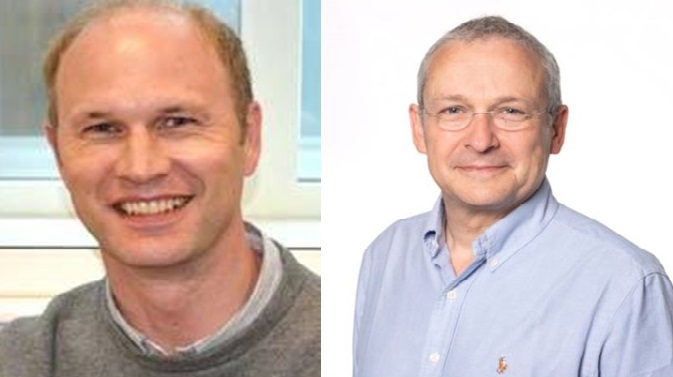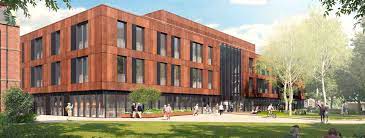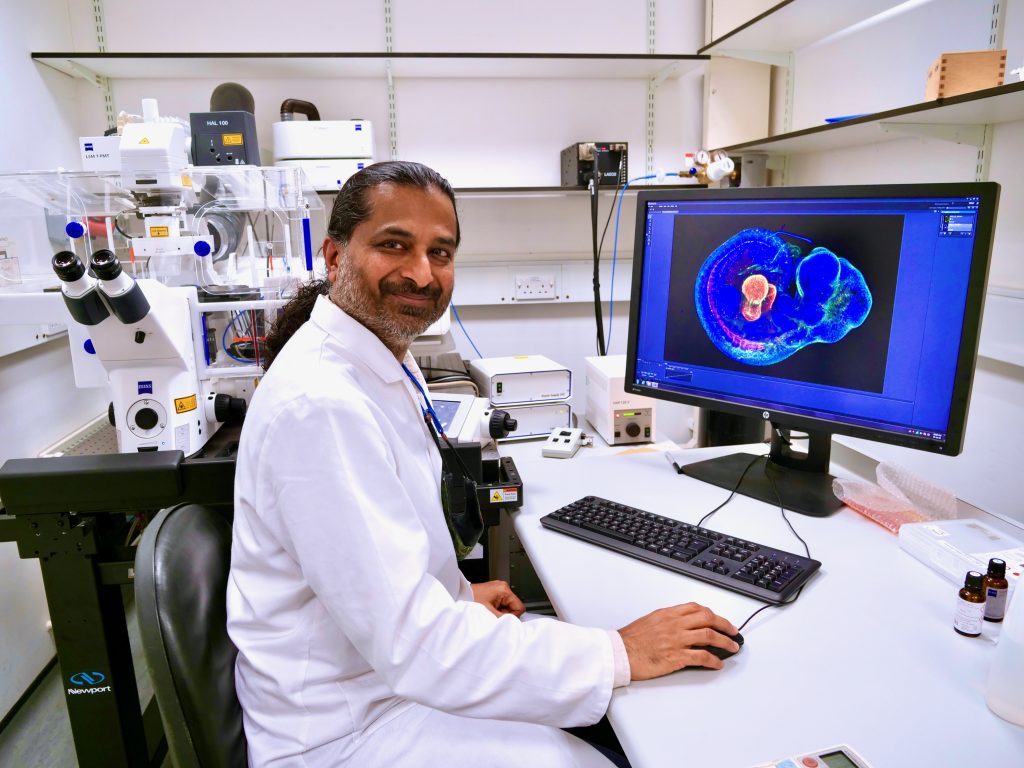A conversation between two Jesus Professorial Fellows was the serendipitous catalyst for the foundation of the Institute of Developmental and Regenerative Medicine (IDRM), a collaborative world first that will bring together hundreds of renowned experts from around the globe to harness and share common approaches to advancing research into the heart, brain and immune system.
During that first meeting in the Jesus SCR in April 2012, Professors Georg Holländer and Paul Riley discussed the gap between developmental biology as it relates to medicine, and explored their common interests. Holländer (Head of Oxford’s Paediatrics Department, and Hoffmann and Action Medical Research Professor of Developmental Medicine), and Riley (Chair of Development and Cell Biology in Physiology, Anatomy & Genetics, and British Heart Foundation Professor of Regenerative Medicine) developed a plan to extend the initial concept of an Institute of developmental medicine to include a logical second focus: from understanding the molecular and cellular basis of organ development to applying that knowledge to regeneration.
They left that meeting entirely oblivious to how much time and work it would require to see their ideas grow from inception to Institute, yet the time taken to realise those ambitions is impressively short when compared with other Oxford projects of similar scope. Opening in early 2022, the £35m IMS-Tetsuya Nakamura Building, located on the Old Road campus in Headington, will be home to the new Institute of Developmental and Regenerative Medicine (IDRM).
In all, over 240 researchers – experts in congenital diseases affecting the cardiovascular, the nervous and the immune systems, regenerative medicine, and tissue engineering – will address human diseases affecting these three tissues within the body. They will study how these organs are normally formed and maintained, and identify the molecular and cellular mechanisms that cause birth defects, including congenital heart disease, and defects in the immune and nervous systems.
With Jesus Tutorial Fellow in Medicine and Professor of Developmental Biology Shankar Srinivas, Riley and Holländer will lead research groups on cell and tissue movement, cardiovascular development and regeneration, and thymus development and regeneration, respectively. It is hoped that their collaboration will enable them to understand the cellular and molecular control of normal human development, and to harness this knowledge to identify the pathogenesis of diseases and design novel therapies that will correct birth defects and repair adult organs.
So, is this the perfect research storm? It is certainly no accident that three of Jesus College’s Professorial Fellows are founding members of the IDRM project. The College has arguably some of the strongest links with developmental biology across the University, with Professorial Fellow Professor Yvonne Jones, Senior Research Fellows and Professors Ilan Davis, Martin Booth and Tutorial Fellow Berta Verd each making significant contributions to award-winning biomedical research. Furthermore, to achieve its goals, the IDRM will combine experimental and computational biology with machine learning, artificial intelligence platforms and mathematical modelling, making it a synergistic fit with the College’s Digital Hub – part of the new Cheng Yu Tung Building project – and its plans for associated studentship programmes.
There is significant interest from Riley, Holländer and Srinivas to secure funding for a PhD studentship for a future Jesus doctoral student to join an IDRM research team; raising funds for graduate studentships is a priority for the College, and it’s a natural step to involve a Jesus DPhil student in cutting-edge research at the Institute.
The aim is for the IDRM to become an internationally-recognised centre of excellence for developmental biology and regenerative medicine research, and it’s inevitable that the Institute’s research learnings will be of significant value to wider areas of medicine in a post-COVID world. With two thirds of all deaths globally attributed to non-communicable diseases, it is not unreasonable to say that we are all stakeholders in the Institute’s mission to use its insights into organ development and regeneration for the development of new drugs and strategies to treat birth defects and acquired disease.
For more information about the Institute of Developmental and Regenerative Medicine, visit www.idrm.ox.ac.uk.
To learn more about funding a Jesus DPhil student associated with the IDRM, please contact Development Director Brittany Wellner James at brittany.wellnerjames@jesus.ox.ac.uk.



